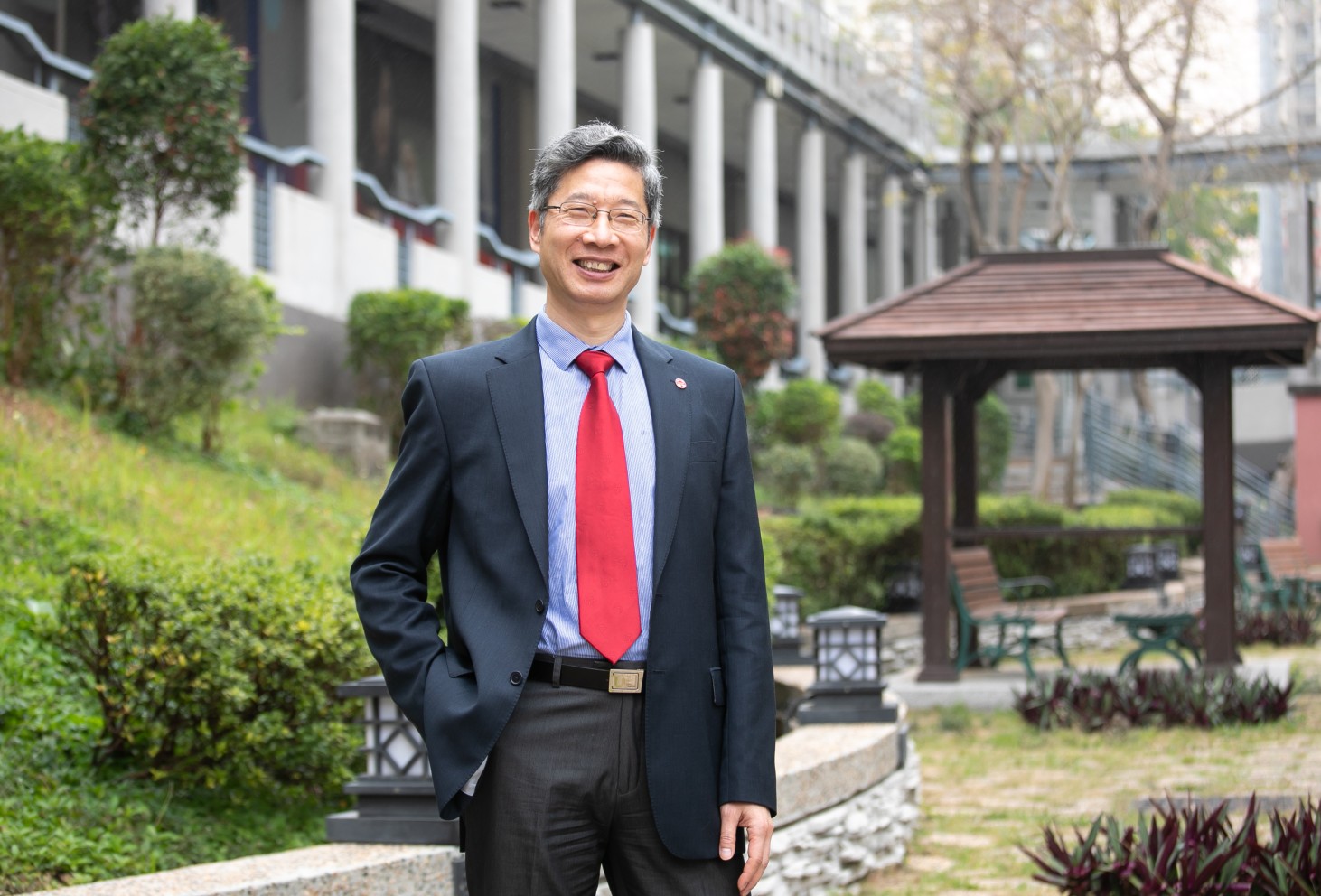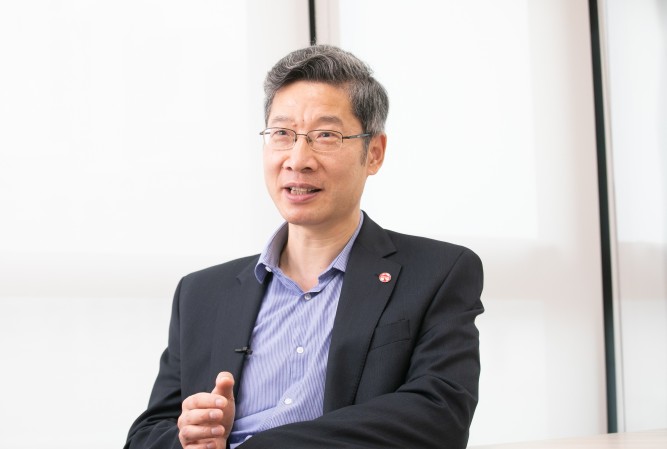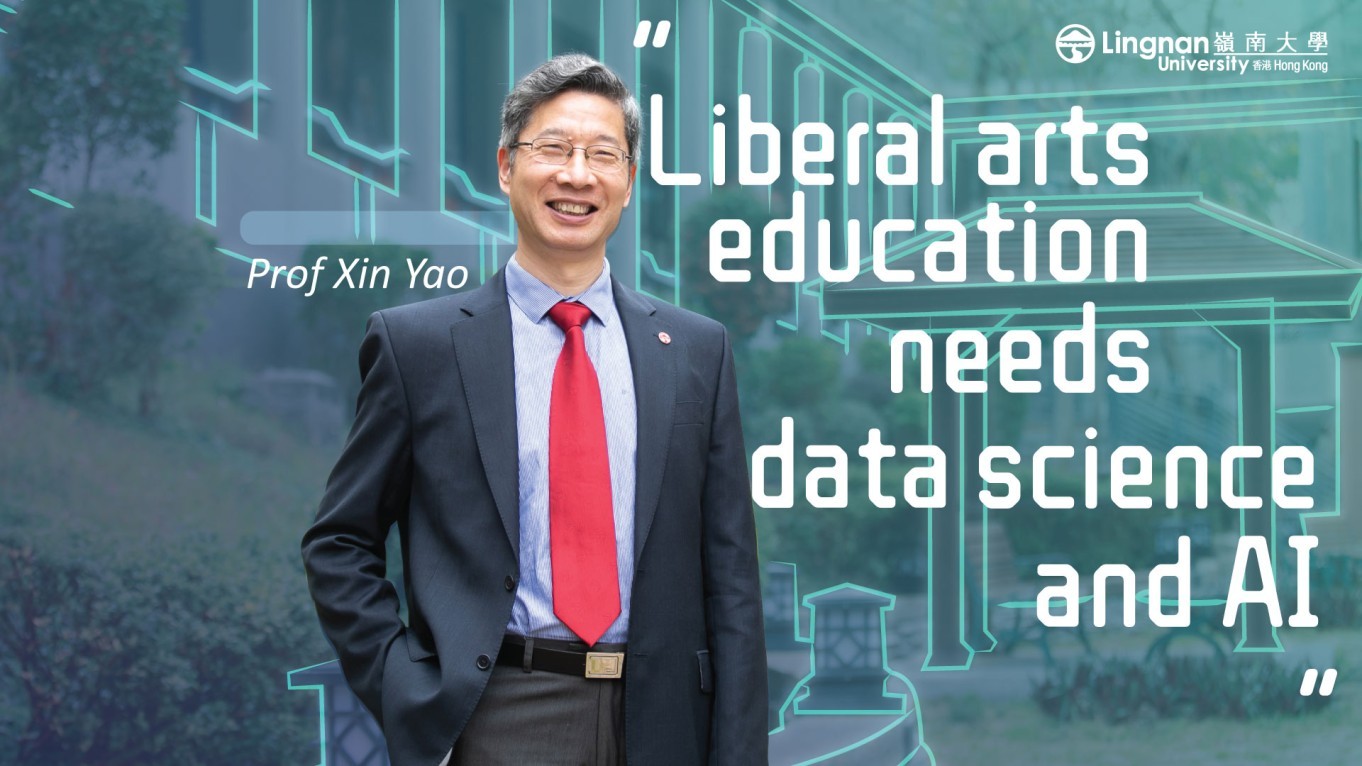[Interview] Prof Xin Yao on his research, discoveries, and his vision as VP

Prof Xin Yao
Vice-President (Research and Innovation) and Tong Tin Sun Chair Professor of Machine Learning, Lingnan University
IEEE Frank Rosenblatt Award 2020
President of the IEEE Computational Intelligence Society 2014-2015
IEEE Fellow 2003
Editor-in-Chief of IEEE Transactions on Evolutionary Computation 2003-2008
Stanford University World's Top 2% Scientists Since 2021
Highly Cited Researchers 2022 & 2023
The accomplishments of Prof Xin Yao, Lingnan University’s Vice-President (Research and Innovation) and Tong Tin Sun Chair Professor of Machine Learning, are manifold. He entered university at 15, and has spearheaded advancements in evolutionary computation, intelligent optimisation, machine learning and AI. Prof Yao is the first ethnic Chinese recipient of the prestigious IEEE Frank Rosenblatt Award among other accolades, but despite his many achievements, this eminent scholar remains humble.
Whenever I feel I have achieved great things, I see my students outshining me. I think that will be my ultimate achievement. Without their progress, society would stand still.
Gifted youth programme
Prof Yao traces his long academic and scientific journey back to 1978, when he was a high school student. “The University of Science and Technology of China (USTC) has a special programme for young children. They went to different provinces and set up special exams, and after three rounds of exams I entered the university slightly earlier than most.”
After earning his bachelor's degree, Prof Yao studied computer engineering and computer architectures for his Master's in Beijing. Returning to USTC for his PhD, he was guided by his supervisor's expertise in AI and combinatorial search—a small branch at the time—which inspired him to concentrate on fundamental AI research and discover a passion for crafting algorithms.
Why does he like it?
"I enjoy designing algorithms,” Prof Yao explains. “Computer science in general is very interesting. You can come up with ideas, and then translate them into algorithms and programmes. You see the result reasonably fast. That is very satisfying.”
For his PhD, he spent the next three to four years working on stochastic search algorithms, and continued exploring this topic during his postdoctoral fellowship at The Australian National University. After nine years in Australia, he was a chair professor at the University of Birmingham until 2016.
"I have not changed my research topic for the last 30 or 40 years," Prof Yao notes.

Still immersed in evolutionary computation, a subfield of AI inspired by natural evolution, Prof Yao highlights the allure of integrating biological principles into AI systems. "It involves a lot of wonderful things, like human beings, human brains, biological brains. There are a lot of very nice characteristics in biological systems that we wish we could integrate into artificial systems… That is actually a very attractive way of developing new AI systems and computing techniques.”
This area of research is inspired by biological systems, focusing on abstract general principles and developing novel computational methods and algorithms that solve complex problems.
Since persistence always pays off, Prof Yao's continuing dedication to advancing evolutionary computation and machine learning has had a significant impact on both foundational and practical aspects of computational intelligence. This not only led to scientific progress in creating tangible real-world effects, but also to his receiving the IEEE Frank Rosenblatt Award in 2020.
His fast evolutionary programming methods improve neural network structure learning, optimal routing, digital filter design, and design of new materials. Introducing a novel approach to stochastic ranking actively assists in solving constrained optimisation challenges across electrical, chemical, mechanical, and aeronautical engineering fields, biology, and economics.
Equipping students
Having returned to Shenzhen from the UK in 2016, AI trailblazer Prof Yao joined Lingnan University earlier this year as the first Lingnan-60 Global Talent hire, where his firm commitment to a research-led liberal arts education drives his involvement.
"Lingnan is a liberal arts university emphasising whole-person education and societal services. We need to keep that,” says Prof Yao, acknowledging Lingnan’s traditional strength in the arts and humanities, social sciences, and business.
But he also recognises that society has changed, especially in this digital age where AI technology is pervasive. “Our students need to understand where science and technology are heading, how they impact our lives and society. That is the first message we would like to get across.”
Prof Yao believes that Lingnan can excel in this area by leveraging its traditional strengths and embracing new opportunities, and says “The Liberal arts education needs data science and AI.”
Equipping students to embody Lingnan's motto of ‘Education for Service’ when they enter society after graduation is an important mission. “Having a basic awareness and appreciation of science and technology is important to serve society effectively,” notes Prof Yao, underscoring Lingnan’s commitment to become a leading research liberal arts university in the digital era, and stressing the importance of integrating science and technology into education. He says that is where our future is.

Prof Yao firmly believes that a liberal arts education needs to incorporate science and technology.
Lingnan has already taken steps in this direction. All university students now have to take an AI course, so as to have fundamental skills. Another initiative is bringing science to the campus by establishing the School of Data Science. This will foster interdisciplinary or multidisciplinary works on campus, allowing excitement and ideas to flow freely among students.
As Vice-President (Research and Innovation), Prof Yao oversees and steers the development of research, innovation, and knowledge transfer at Lingnan, providing leadership for the research institutes and centres.
"My role is to support people to excel in their research. I am very passionate about research because one of its fundamental characteristics is knowledge creation. To educate the next generation to be societal contributors, innovators, and creators of knowledge, we need to engage actively in knowledge creation ourselves.”
Prof Yao sees education and research as two sides of a coin that cannot be separated. “I aim to support and motivate people to conduct more research at different levels, ranging from cutting-edge technology to the arts and humanities. The most interesting will be at the intersection between the two,” he explains.

Two-legged system
A distinguished scholar with considerable international and domestic experience, Prof Yao offers valuable insights on how Hong Kong can harness the potential of the Greater Bay Area (GBA) development, and how students can make the most of opportunities.
He feels it is crucial to cooperate and collaborate closely with the GBA, while pointing out the significance of Hong Kong's advantages: “We should not forget that Hong Kong is a very open and international city. While striving to integrate into the GBA, we should preserve our unique strengths and advantages, which can be demonstrated better in that way.” He calls this a “two-legged system”—integrating into GBA activities and at the same time remaining open to the rest of the world, and encourages students to be more open-minded. “We want to be integrated into the GBA. But we also need to be outward-looking internationally, as that has many implications.”
Using job seeking as an example, he hopes students will not limit themselves to Hong Kong or the GBA. “They should look internationally. They should have this desire and ambition and say I can find the job I like best anywhere in the world. I think that outlook is very important.”
Sport is better than mobile phones
Beyond academia, Prof Yao believes in physical well-being and the value of team sports. As a student, he played in both the volleyball and basketball teams. “Many years ago, there were no mobile phones or TV. But as a kid, you liked to do something other than study. I played basketball for quite a long time when I was an undergraduate and as a PhD student, I played for my university for almost a decade. It was very enjoyable.” He contributed to his team's victory in the intercollegiate basketball championship, earning him recognition as an outstanding player.
Nowadays, Prof Yao jogs sometimes—not very exciting, he says, but still very useful in getting away from his daily work. “When you sweat, you feel happier. I get a lot of happiness out of playing sports... That is something I always tell students: play a sport. It is great fun, and much better than playing on a mobile phone, because sports are somehow very interactive.”
Under Prof Yao's guidance, and with Lingnan's teamwork, research and innovation as well as dedication to the research-led liberal arts education, and the integration of technology, and social services, students are achieving global excellence in an ever-evolving world.


